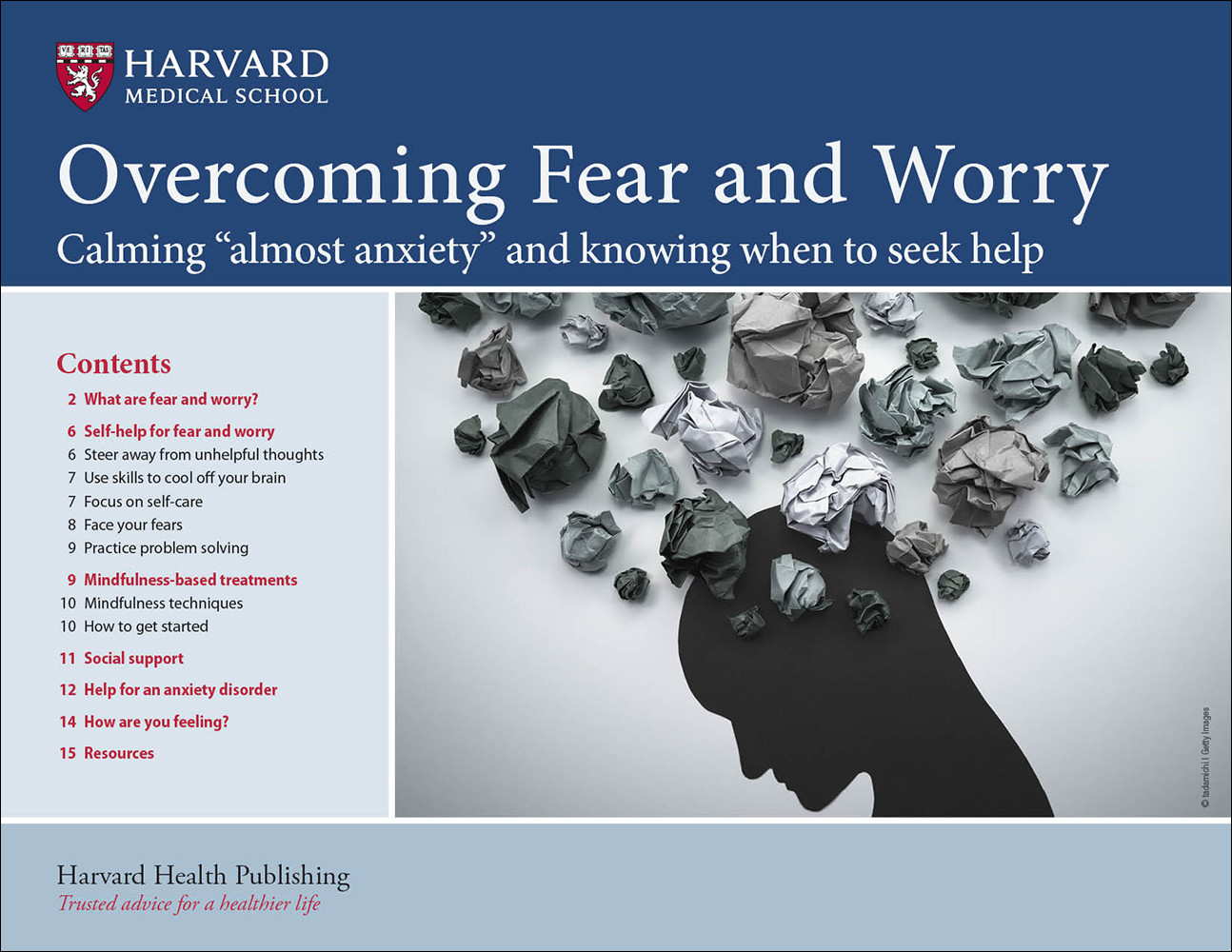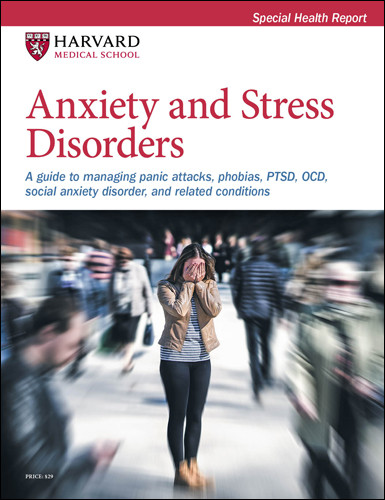Life can be unpredictable, and there is a lot going on in the world. Feelings of fear and worry are perfectly natural. However, worrying constantly or excessively about what ‘may’ happen can get you stuck in a cycle of harmful thoughts and behaviors. Now in a Special Health Report from Harvard Medical School, our experts bring you practical ideas based on the latest research to help you overcome feelings of fear and worry. By understanding the real reason why you worry, you can take effective action towards feeling at ease and at peace.
Read
Overcoming Fear and Worry and discover:
- The “How anxious are you?” quiz. Take this quiz to rate your anxiety level and find out if you are truly anxious or experiencing “almost” anxiety.
- When anxiety is good. You might be surprised to learn that research shows that a certain level of anxiety can work to your advantage and help you achieve optimal performance. Find out how much stress is too much stress.
- Mindful-based treatments to prevent you from falling down the rabbit hole of worry.
- How to find social support networks that can ease the anxiety you feel.
- The signs of a true anxiety disorder and the 4 types of disorders people suffer from. Discover what to do if you suffer from any of these anxiety disorders.
- And so much more!
This report holds nothing back. You’ll arm yourself with tools to overcome fear and worry so you can develop a true life strategy and feel more centered throughout the day. The tools found in this guide are not short-term fixes. They are life tools you can use any time you encounter a stressful or difficult situation. When you’re attempting to reduce fear and worry, it’s important to remember progress can take time. If you have a few setbacks along the way, don’t get discouraged. Gradually, with time, patience, practice, and persistence, your ability to keep negative thoughts at bay should start to improve.
Prepared by the editors of Harvard Health Publishing in consultation with Luana Marques, PhD, Director, Community Psychiatry Program for Research in Implementation and Dissemination of Evidence-Based Treatments, Massachusetts General Hospital and Associate Professor of Psychology, Department of Psychiatry, Harvard Medical School. (2022)
About Harvard Medical School Guides
Harvard Medical School Guides delivers compact, practical information on important health concerns. These publications are smaller in scope than our Special Health Reports, but they are written in the same clear, easy-to-understand language, and they provide the authoritative health advice you expect from Harvard Health Publishing.













